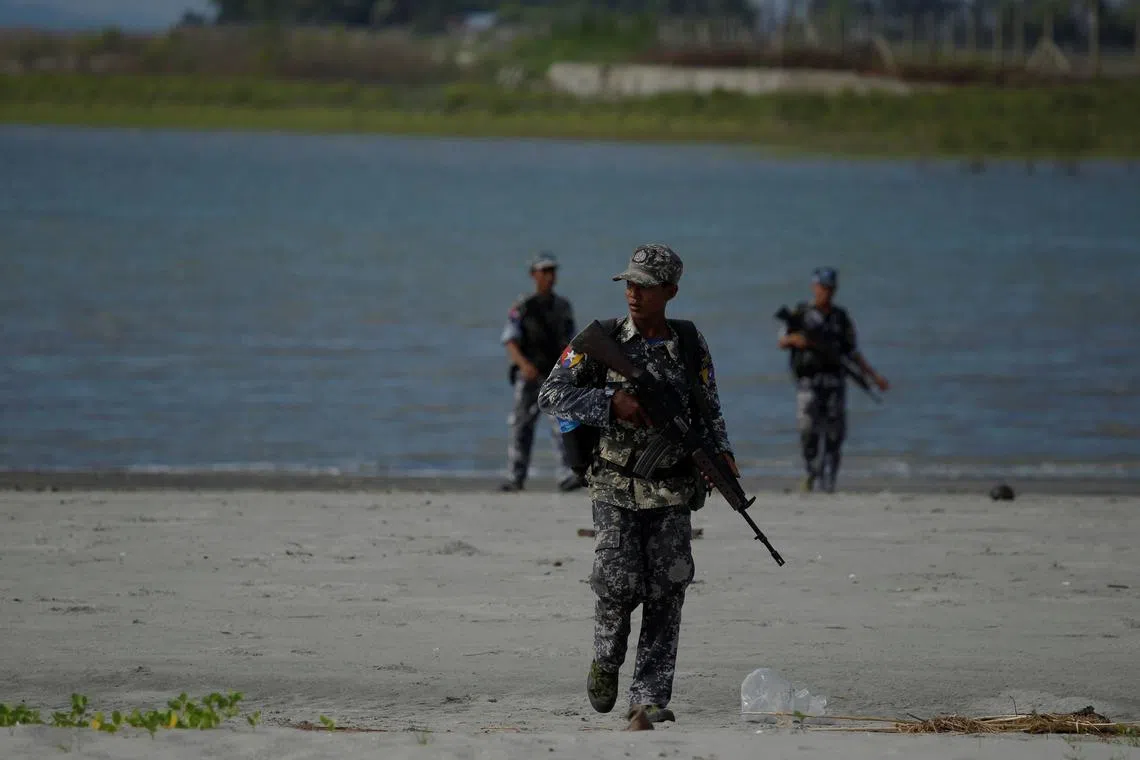UN rights chief: Rohingya have ‘nowhere to flee’ in western Myanmar fighting
Sign up now: Get insights on Asia's fast-moving developments

Myanmar soldiers patrolling an area outside Maungdaw town, where there has been fierce clashes between an ethnic rebel group and junta forces.
PHOTO: REUTERS
GENEVA – Tens of thousands of Muslim-minority Rohingya, who were feared to be trapped amid fighting in western Myanmar, have nowhere to flee, the United Nations human rights chief said on June 18.
The Arakan Army, which is fighting for autonomy for Myanmar’s Rakhine region, said late on June 16 that residents of the town of Maungdaw, inhabited primarily by the Rohingya, should leave ahead of a planned offensive.
“I am very concerned about the situation in Maungdaw. The Arakan Army this weekend gave all remaining residents, including a large Rohingya population, a warning to evacuate,” Mr Volker Turk, the UN high commissioner for human rights, told the UN Human Rights Council in Geneva.
“But Rohingya have no options. There is nowhere to flee.”
The Rohingya have faced persecution in Buddhist-majority Myanmar for decades. Nearly a million of them live in refugee camps in Bangladesh’s border district of Cox’s Bazar after fleeing a military-led crackdown in Rakhine state on the western coast in 2017.
The Arakan Army’s attack on Maungdaw is the latest in a months-long rebel onslaught against the Myanmar junta, which took power in a February 2021 coup and is finding its position increasingly weakened across large parts of Myanmar.
Around 70,000 Rohingya in Maungdaw are trapped as the fighting draws close
A resident of Maungdaw, who declined to be named for safety reasons, said: “We have nowhere to go, no safe zone, not enough food and basic necessities.
“If they force us to leave, we will have no place to migrate.” REUTERS


